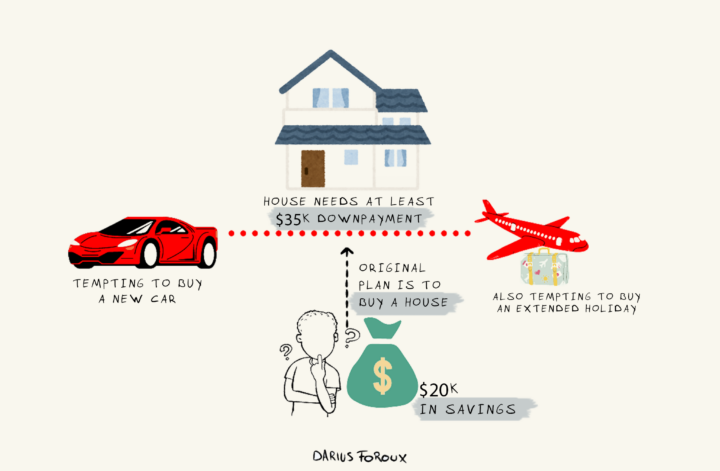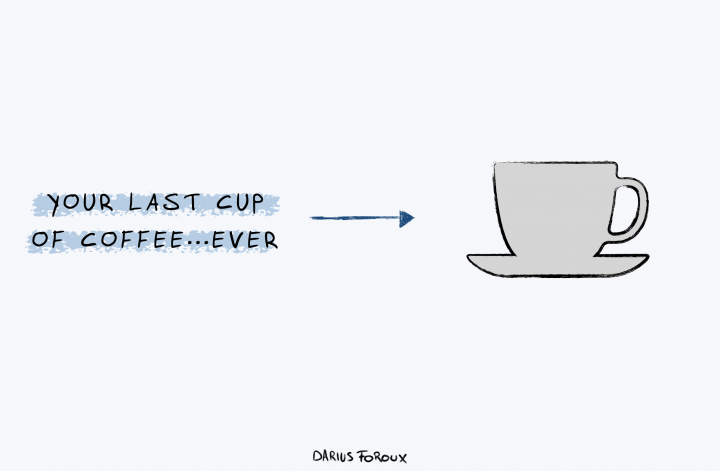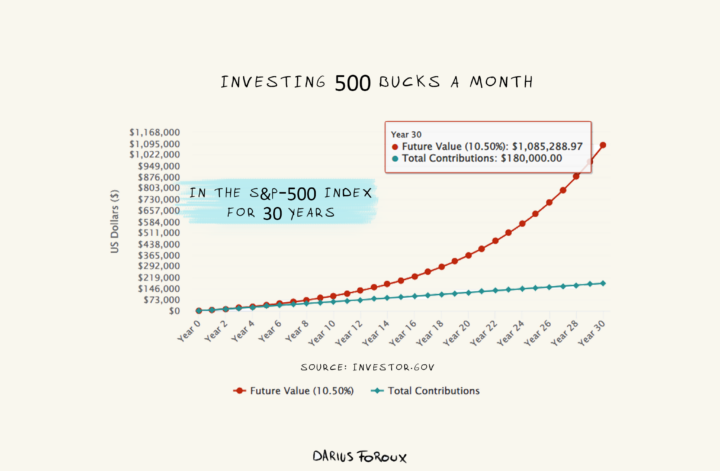A friend of mine was saving for a down payment on a house. The target? A 10% down payment on a $350,000 property. After more than a year of disciplined saving, he had managed to amass about $20,000.
But then, he began to feel an itch. Why not use that money to travel? Or maybe buy a new car?
The house he was dreaming of buying still seemed far out of reach, and the money sitting in his bank account was so readily accessible.
I asked him, “What do you think your future self will think if you spent it?”
His response was a pause followed by a contemplative silence. It got him thinking – and it’s something we all need to ponder.
With homeownership becoming more difficult in today’s economy, it’s understandable why some might consider using their hard-earned savings for other purchases instead. But you know that you’ll likely regret doing so.
Here’s the reality: The world won’t follow our plans.
All kinds of things can happen that derail your plans. Whether that’s financial like inflation or high interest rates, or emotional, like dealing with depression.
But no matter what happens, it doesn’t mean you should give up your plans altogether.
In my friend’s case, he needs to make sure his money goes towards the house down payment. Plans can change because of external circumstances, but when we can actually achieve our goals, we should.
So, how can you ensure that you don’t squander your savings? And how do you stay on track and use your money for your goals?
Remember that money is emotional, not logical
Look, you can’t calculate or budget yourself toward financial freedom.
You can spend so little and still not feel wealthy. Or you can earn a lot and end up spending most of it. It’s all about your mindset.
Our spending habits are often tied to our desires, fears, and self-worth. We often make money mistakes when we make financial decisions based on emotions rather than logic.
When it comes to spending our savings, it’s easy to get swayed by our impulses. Personal finance authors Vicki Robin and Joe Dominguez said it well in their book, Your Money or Your Life:
“Money is something you trade your life energy for. You sell your time for money. It doesn’t matter that Ned over there sells his time for a hundred dollars and you sell yours for twenty dollars an hour. Ned’s money is irrelevant to you. The only real asset you have is your time. The hours of your life.”
Sometimes, we also give in to the urge for immediate pleasure. So, before you touch your savings, take a moment to think.
Why do you want to make a purchase?
- Is it something you really need and does it match your long-term financial goals?
- Or are you being pushed by outside pressures? These could be other people’s expectations, or trying to prove something to others.
- Maybe you’re buying things out of boredom, and you don’t really want that purchase as much?
By being self-aware, you can stay clear of decisions that can bring your financial ruin.
Make NOT spending easier
Spending is a habit. And like any habit, a good habit is easier to keep when your environment encourages you to keep doing it. On the flip side, a bad habit is easier to break when you remove or avoid triggers that lead to it.
So, if you find yourself constantly tempted to spend money, try making some changes to your environment:
- Limit your access to online shopping sites by turning off notifications or deleting apps.
- Unsubscribe from email newsletters that promote sales and discounts.
- Avoid physical stores unless you have a specific item in mind that you need to purchase.
By removing these triggers, you can make it easier to resist impulsive purchases.
Additionally, finding alternative activities or hobbies that don’t involve spending money can also be helpful.
Remember: Spending money is not bad! It’s actually necessary and good. If you use money well, it drastically improves the quality of your life.
The point is that you don’t want to make spending money habitual. When you eat out several times a week and always go to fancy restaurants, you get used to it. And the experience becomes normal.
But if you occasionally go to a fancy restaurant, you’ll have a 10/10 experience every single time.
The first step to achieving your goals is sticking to your plans
We don’t control outcomes, but we control our actions. If you have a long-term goal, like buying a house someday, then you won’t reach that if you spend your savings on impulse buying.
Remember, it’s not about depriving yourself of things you want. It’s about being intentional with how you spend your money.
Always think about your long-term goals and whether a purchase will bring you closer to them.
Remember, we control our money, not the other way around.




